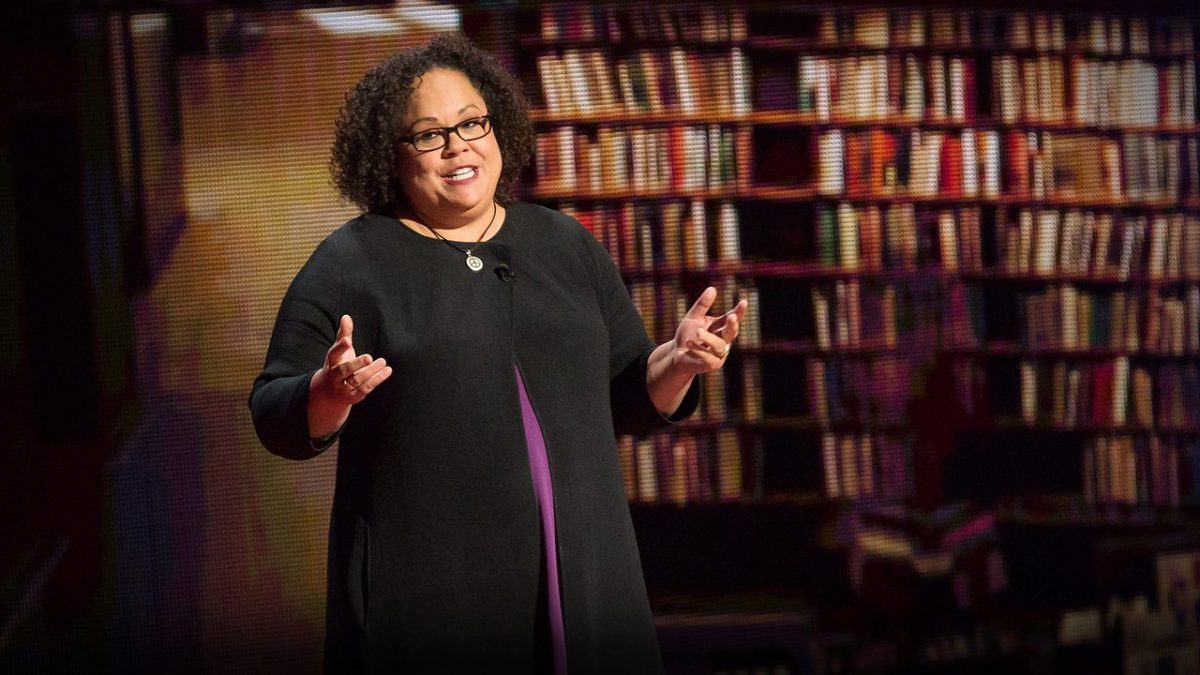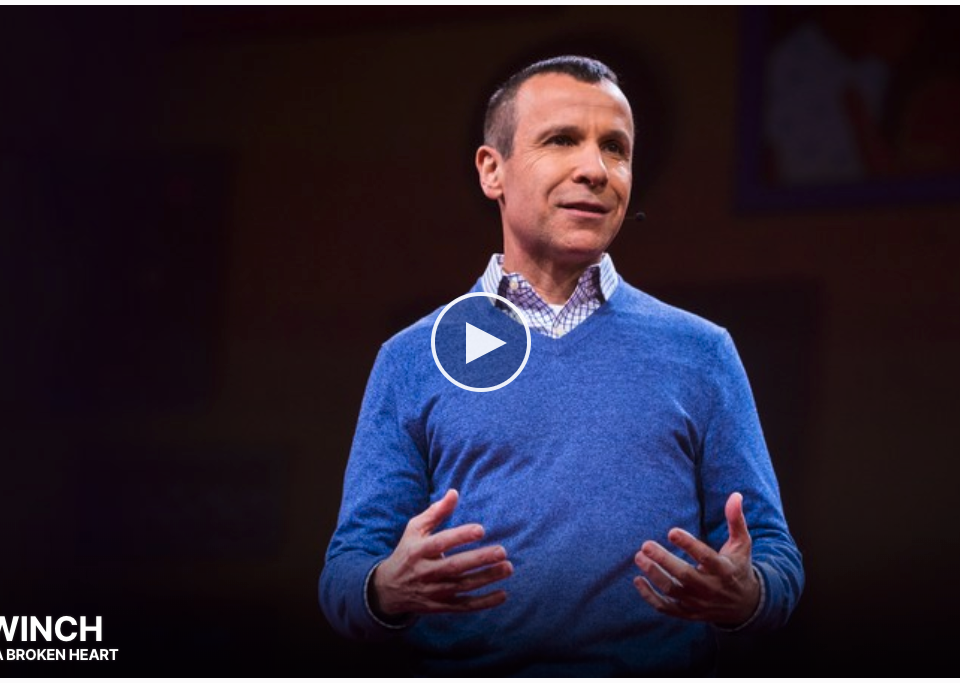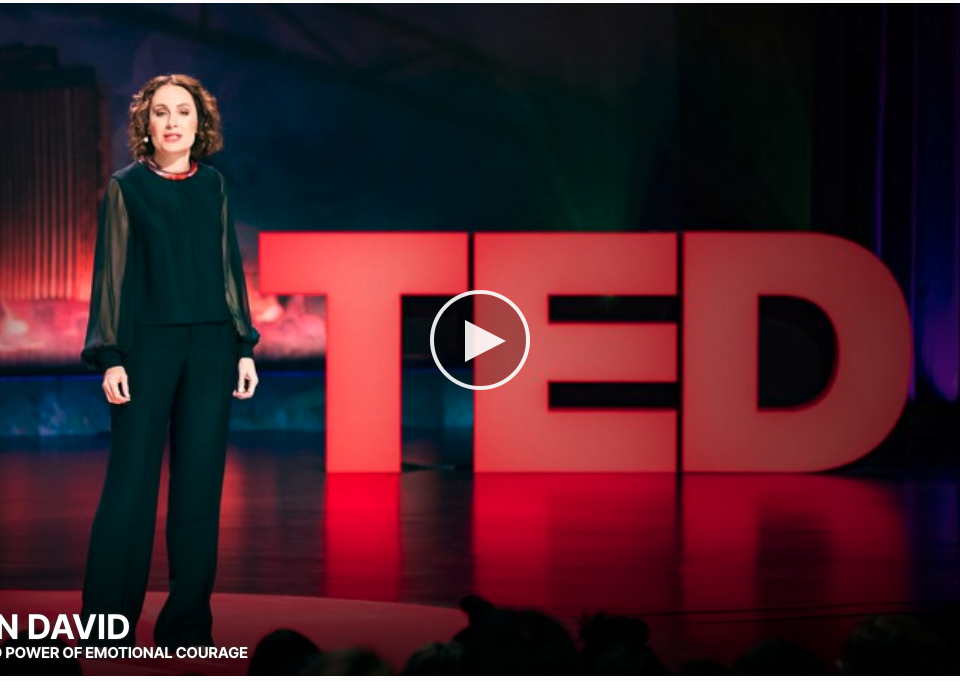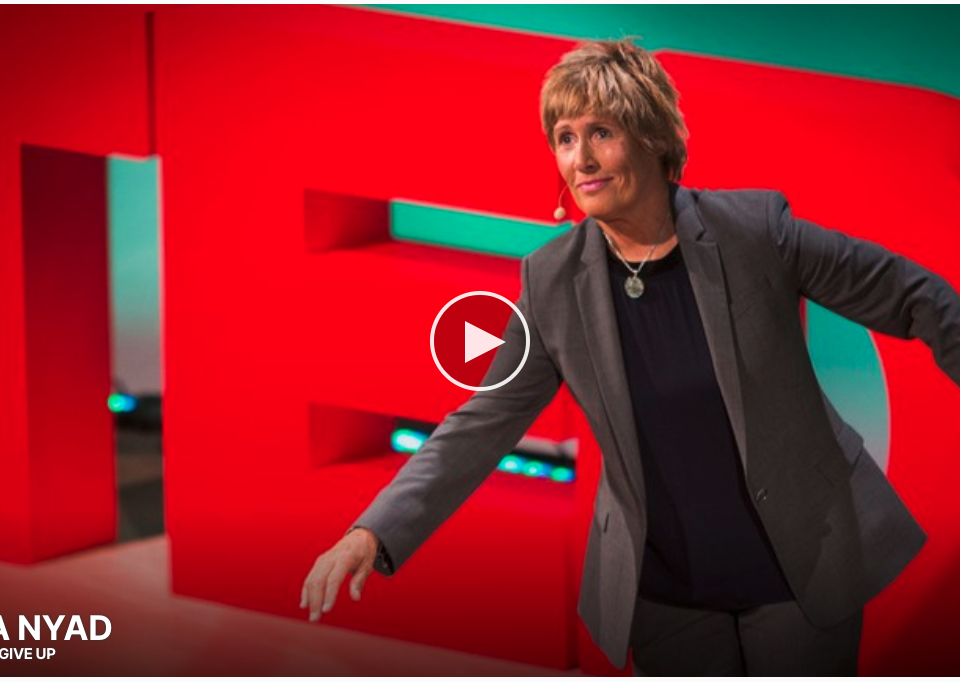
Sunshine may prevent cancer
14 de agosto de 2019
Marriage is good for your health
21 de agosto de 2019You know, I didn’t set out to be a parenting expert. In fact, I’m not very interested in parenting, per Se. It’s just that there’s a certain style of parenting these days that is kind of messing up kids, impeding their chances to develop into themselves. There’s a certain style of parenting these days that’s getting in the way.
I guess what I’m saying is, we spend a lot of time being very concerned about parents who aren’t involved enough in the lives of their kids and their education or their upbringing, and rightly so. But at the other end of the spectrum, there’s a lot of harm going on there as well, where parents feel a kid can’t be successful unless the parent is protecting and preventing at every turn and hovering over every happening, and micromanaging every moment, and steering their kid towards some small subset of colleges and careers.
When we raise kids this way, and I’ll say we, because Lord knows, in raising my two teenagers, I’ve had these tendencies myself, our kids end up leading a kind of checklisted childhood.
And here’s what the checklisted childhood looks like. We keep them safe and sound and fed and watered, and then we want to be sure they go to the right schools, that they’re in the right classes at the right schools, and that they get the right grades in the right classes in the right schools. But not just the grades, the scores, and not just the grades and scores, but the accolades and the award and the sports, the activities, the leadership. We tell our kids, don’t just join a club, start a club, because colleges want to see that. And check the box for community service. I mean, show the colleges you care about others.
And all of this is done to some hoped-for degree of perfection. We expect our kids to perform at a level of perfection we were never asked to perform at ourselves, and so because so much is required,we think, well then, of course we parents have to argue with every teacher and principal and coach and referee and act like our kid’s concierge and personal handler and secretary.
And then with our kids, our precious kids, we spend so much time nudging, cajoling, hinting, helping, haggling, nagging as the case may be, to be sure they’re not screwing up, not closing doors, not ruining their future, some hoped-for admission to a tiny handful of colleges that deny almost every applicant.
And here’s what it feels like to be a kid in this checklisted childhood. First of all, there’s no time for free play. There’s no room in the afternoons, because everything has to be enriching, we think. It’s as if every piece of homework, every quiz, every activity is a make-or-break moment for this future we have in mind for them, and we absolve them of helping out around the house, and we even absolve them of getting enough sleep as long as they’re checking off the items on their checklist. And in the checklisted childhood, we say we just want them to be happy, but when they come home from school, what we ask about all too often first is their homework and their grades. And they see in our faces that our approval, that our love, that their very worth, comes from A’s. And then we walk alongside them and offer clucking praise like a trainer at the Westminster Dog Show — coaxing them to just jump a little higher and soar a little farther, day after day after day. And when they get to high school, they don’t say, “Well, what might I be interested in studying or doing as an activity?” They go to counselors and they say, “What do I need to do to get into the right college?”And then, when the grades start to roll in in high school, and they’re getting some B’s, or God forbid some C’s, they frantically text their friends and say, “Has anyone ever gotten into the right college with these grades?”
And our kids, regardless of where they end up at the end of high school, they’re breathless. They’re brittle. They’re a little burned out. They’re a little old before their time, wishing the grown-ups in their lives had said, “What you’ve done is enough, this effort you’ve put forth in childhood is enough.” And they’re withering now under high rates of anxiety and depression and some of them are wondering,will this life ever turn out to have been worth it?
Well, we parents, we parents are pretty sure it’s all worth it. We seem to behave — it’s like we literally think they will have no future if they don’t get into one of these tiny set of colleges or careers we have in mind for them.
Or maybe, maybe, we’re just afraid they won’t have a future we can brag about to our friends and with stickers on the backs of our cars. Yeah.
But if you look at what we’ve done, if you have the courage to really look at it, you’ll see that not only do our kids think their worth comes from grades and scores, but that when we live right up inside their precious developing minds all the time, like our very own version of the movie “Being John Malkovich,” we send our children the message: “Hey kid, I don’t think you can actually achieve any of this without me.” And so with our overhelp, our overprotection and overdirection and hand-holding,we deprive our kids of the chance to build self-efficacy, which is a really fundamental tenet of the human psyche, far more important than that self-esteem they get every time we applaud. Self-efficacy is built when one sees that one’s own actions lead to outcomes, not — There you go.
Not one’s parents’ actions on one’s behalf, but when one’s own actions lead to outcomes. So simply put, if our children are to develop self-efficacy, and they must, then they have to do a whole lot more of the thinking, planning, deciding, doing, hoping, coping, trial and error, dreaming and experiencing of life for themselves.
Now, am I saying every kid is hard-working and motivated and doesn’t need a parent’s involvement or interest in their lives, and we should just back off and let go? Hell no.
That is not what I’m saying. What I’m saying is, when we treat grades and scores and accolades and awards as the purpose of childhood, all in furtherance of some hoped-for admission to a tiny number of colleges or entrance to a small number of careers, that that’s too narrow a definition of success for our kids. And even though we might help them achieve some short-term wins by overhelping — like they get a better grade if we help them do their homework, they might end up with a longer childhood résumé when we help — what I’m saying is that all of this comes at a long-term cost to their sense of self. What I’m saying is, we should be less concerned with the specific set of colleges they might be able to apply to or might get into and far more concerned that they have the habits, the mindset, the skill set, the wellness, to be successful wherever they go. What I’m saying is, our kids need us to be a little less obsessed with grades and scores and a whole lot more interested in childhood providing a foundation for their success built on things like love and chores.
Did I just say chores? Did I just say chores? I really did. But really, here’s why. The longest longitudinal study of humans ever conducted is called the Harvard Grant Study. It found that professional success in life, which is what we want for our kids, that professional success in life comes from having done chores as a kid, and the earlier you started, the better, that a roll-up-your-sleeves- and-pitch-in mindset, a mindset that says, there’s some unpleasant work, someone’s got to do it, it might as well be me, a mindset that says, I will contribute my effort to the betterment of the whole, that that’s what gets you ahead in the workplace. Now, we all know this. You know this.
We all know this, and yet, in the checklisted childhood, we absolve our kids of doing the work of chores around the house, and then they end up as young adults in the workplace still waiting for a checklist, but it doesn’t exist, and more importantly, lacking the impulse, the instinct to roll up their sleeves and pitch in and look around and wonder, how can I be useful to my colleagues? How can I anticipate a few steps ahead to what my boss might need?
A second very important finding from the Harvard Grant Study said that happiness in life comes from love, not love of work, love of humans: our spouse, our partner, our friends, our family. So childhood needs to teach our kids how to love, and they can’t love others if they don’t first love themselves, and they won’t love themselves if we can’t offer them unconditional love.
Right. And so, instead of being obsessed with grades and scores when our precious offspring come home from school, or we come home from work, we need to close our technology, put away our phones, and look them in the eye and let them see the joy that fills our faces when we see our child for the first time in a few hours. And then we have to say, “How was your day? What did you like about today?” And when your teenage daughter says, “Lunch,” like mine did, and I want to hear about the math test, not lunch, you have to still take an interest in lunch. You gotta say, “What was great about lunch today?” They need to know they matter to us as humans, not because of their GPA.
All right, so you’re thinking, chores and love, that sounds all well and good, but give me a break. The colleges want to see top scores and grades and accolades and awards, and I’m going to tell you, sort of. The very biggest brand-name schools are asking that of our young adults, but here’s the good news. Contrary to what the college rankings racket would have us believe — you don’t have to go to one of the biggest brand name schools to be happy and successful in life.Happy and successful people went to state school, went to a small college no one has heard of, went to community college, went to a college over here and flunked out.
The evidence is in this room, is in our communities, that this is the truth. And if we could widen our blinders and be willing to look at a few more colleges, maybe remove our own egos from the equation, we could accept and embrace this truth and then realize, it is hardly the end of the world if our kids don’t go to one of those big brand-name schools. And more importantly, if their childhood has not been lived according to a tyrannical checklist then when they get to college, whichever one it is, well, they’ll have gone there on their own volition, fueled by their own desire, capable and ready to thrive there.
I have to admit something to you. I’ve got two kids I mentioned, Sawyer and Avery. They’re teenagers. And once upon a time, I think I was treating my Sawyer and Avery like little bonsai trees — that I was going to carefully clip and prune and shape into some perfect form of a human that might just be perfect enough to warrant them admission to one of the most highly selective colleges. But I’ve come to realize, after working with thousands of other people’s kids — and raising two kids of my own, my kids aren’t bonsai trees. They’re wildflowers of an unknown genus and species — and it’s my job to provide a nourishing environment, to strengthen them through chores and to love them so they can love others and receive love and the college, the major, the career, that’s up to them. My job is not to make them become what I would have them become, but to support them in becoming their glorious selves.
Thank you.
Texto em Português:
Sabem, nunca me propus ser especialista em criação dos filhos. De fato, não me interesso por habilidades parentais, per se. Mas há atualmente um estilo de educação dos filhos que está estragando as crianças, impedindo suas chances de tornarem-se elas mesmas. Hoje, há um certo estilo de educação dos filhos que os está atrapalhando.
O que eu quero dizer é que gastamos muito tempo preocupados com pais que não se envolvem o suficiente com suas crianças, sua educação e formação, e com razão. Mas do outro lado do espectro, há muitos danos acontecendo também, com pais achando que uma criança não pode ser bem-sucedida a menos que eles a protejam, a previnam a cada momento, a rodeiem em tudo o que acontece, a vistoriem a todo momento, e guiem seus filhos a um pequeno subgrupo de faculdades e carreiras.
Quando criamos filhos dessa forma, e direi nós, porque Deus sabe, ao criar meus dois adolescentes, eu mesma caí nessas tendências, nossos filhos acabam tendo um tipo de infância com lista de afazeres.
Assim é uma infância com lista de afazeres: nós os mantemos em segurança, alimentados e hidratados, então queremos ter certeza de que vão às escolas certas, mas não para aí. Que façam as aulas certas, nas escolas certas, com as notas certas nas aulas e nas escolas certas. Mas não só notas, os pontos. E não só notas e pontos, mas distinções e prêmios, e esportes, e atividades, e liderança. Dizemos a eles: não se afiliem a um grêmio, mas criem um, porque é isso que faculdades querem ver. Marquem o quadrado de serviço comunitário. Digo, mostrem às faculdades que se importam com outros.
Tudo isso feito em vista de alcançar um grau de perfeição. Esperamos que nossos filhos se desempenhem com nível de perfeição que nunca foi pedido a nós, e já que tanto é exigido, nós pensamos: “Claro que nós, pais, temos que discutir com todos professores e diretores e treinadores e juízes e agir como assistentes de nossos filhos e prestadores pessoais e secretários”.
Então com nossos filhos, tão preciosos, passamos tanto tempo dando empurrões, adulando, sugerindo, ajudando, brigando, persistindo conforme o caso, para ter certeza de que não cometam erros, de que não fechem portas, arruinando seus futuros, para alguma admissão sonhada em um pequeno número de faculdades que rejeita quase todos candidatos.
E isso é ser criança nesta infância com lista de afazeres. Primeiro, não há tempo para brincar livremente. Não há espaço nas tardes, porque tudo tem que enriquecer as aulas, pensamos. Como se cada lição de casa, cada teste, cada atividade fosse decisivo nesse futuro que nós temos em mente para eles, e nós os isentamos de ajudar em casa, e nós até os isentamos de dormir o suficiente contanto que marquem o quadrado dos itens em suas listas. Nessa infância de lista de afazeres, só queremos que sejam felizes, mas quando chegam da escola, o que sempre perguntamos a eles primeiro é sobre a lição de casa e notas. E eles veem em nossos rostos que nossa aprovação, nosso amor, que eles merecem tanto, vêm dos A’s. E andamos ao lado deles e ofertamos elogios exagerados, como um adestrador num show de cachorros de Westminster, persuadindo-os a saltar mais alto e a subirem mais adiante, dia após dia. Quando chegam ao ensino médio, não dizem: “Pelo que será que vou me interessar em estudar ou fazer?” Eles vão aos conselheiros e dizem: “O que eu preciso fazer para entrar na faculdade certa?” E daí, quando as notas começam a rolar no ensino médio, e eles tiram alguns B’s, ou Deus o livre, uns C’s, eles mandam mensagens para os amigos dizendo: “Alguém já entrou na faculdade certa com essas notas?”
E nossos filhos, independentemente de onde estejam no final do ensino médio, estão sem fôlego, sentindo-se frágeis, um pouco esgotados. Envelheceram um pouco antes do tempo, querendo que os adultos em suas vidas tivessem dito: “Você já fez o suficiente, o tanto que você se esforçou na infância já está bom”. E agora estão murchando diante da ansiedade e depressão e alguns estão se perguntando: “Será que esta vida vai acabar valendo a pena?”
Nós pais temos toda certeza de que vale a pena. Parece que nos comportamos como se, literalmente, pensássemos que não haverá futuro se eles não ingressarem numa faculdade ou carreira daquele grupo seleto, que temos em mente para eles.
Ou talvez, temos medo de que não terão um futuro do qual poderemos nos gabar para nossos amigos e com adesivos na traseira dos nossos carros. Sim!
Mas se olharmos para o que temos feito, se temos a coragem de realmente observar, veremos que não só nossas crianças pensam que seu valor vem de notas e pontos, mas que quando nós vivemos lá dentro dessas mentes preciosas em desenvolvimento o tempo todo, como a nossa própria versão do filme “Quero ser John Malkovich”, mandamos uma mensagem às nossas crianças: “Ei criança, não acho que você pode realizar nada disso sem mim”. E daí ajudamos demais, com nossa superproteção, superdirecionamento e mãos dadas, e privamos nossos filhos da oportunidade de criarem auto-eficácia, certamente um pilar fundamental da psique humana, muito mais importante do que a autoestima que conseguem todas as vezes que os aplaudimos. Auto-eficácia é criada quando vemos que nossas ações levam a resultados, e não… É isso aí… não às ações dos pais em nosso benefício, mas quando nossas próprias ações levam a resultados.Em outras palavras: se nossos filhos vão desenvolver auto-eficiência, e eles devem, então têm que praticar muito mais do pensar, planejar, decidir, fazer, esperar, lidar, tentar e errar, sonhar e experimentar na vida por si próprios.
Estou dizendo com isso que toda criança trabalha duro e é motivada e não precisa do envolvimento ou interesse dos pais em sua vida, e que nós devemos nos afastar e abandoná-la? De jeito nenhum.
Não é isso que estou dizendo. O que eu digo é que quando tratamos notas e pontos, distinções e prêmios como o propósito da infância, tudo na esperança do ingresso num seleto número de faculdades ou da entrada num seleto número de carreiras, esta é uma definição de sucesso muito restrita para os nossos filhos. E apesar de ajudá-los a atingir ganhos de curto prazo ajudando demais, como tirar notas melhores se os ajudamos na lição de casa, eles podem ter um currículo infantil mais longo quando os ajudamos. O que estou dizendo é que tudo isso vem com um custo a longo prazo em suas percepções de identidade. O que eu digo é que devemos nos preocupar menos com um grupo específico de faculdades em que possam se candidatar ou ingressar e muito mais preocupados de eles terem os hábitos, a mentalidade, as habilidades, e o bem-estar para terem sucesso onde quer que forem. O que digo é que nossos filhos precisam de nós menos obcecados com notas e pontos e muito mais interessados em prover uma base para o seu sucesso na infância,construída em coisas como amor e tarefas domésticas.
Eu falei tarefas domésticas? Sim, falei mesmo. Aqui está o porquê: o mais longo estudo longitudinal de humanos já feito é chamado Harvard Grant Study. Descobriram que o sucesso profissional na vida, que é o que queremos para nossos filhos, vem de eles terem feito tarefas domésticas quando crianças, e quanto mais cedo começarem, melhor. A mentalidade de arregaçar as mangas, contribuir, e dizer: “Há uma tarefa desagradável, alguém precisa fazê-la, então que seja eu”. Uma mentalidade que diz: “Vou contribuir com meu esforço para a melhoria do todo”. Isso é o que nos dá vantagens no ambiente de trabalho. Todos sabemos disso. Vocês sabem disso.
Sabemos disso, e ainda assim, na infância com lista de afazeres, isentamos nossos filhos de fazer as tarefas domésticas, e eles se tornam jovens adultos no ambiente de trabalho ainda esperando por uma lista de afazeres, mas não há uma, e o mais importante, carecendo do impulso, do instinto de arregaçar as mangas e colaborar, olhar em volta e se perguntar: “Como posso ser útil aos meus colegas? Como posso antecipar alguns passos de algo que o meu chefe pode precisar?”
Uma segunda descoberta importante do Harvard Grant Study diz que felicidade na vida vem do amor, não do amor pelo trabalho, do amor dos humanos: do nosso cônjuge, parceiro, nossos amigos, família. Então a infância precisa ensinar nossos filhos como amar, e eles não podem amar os outros se não amarem a si mesmos primeiro, e não amarão a si mesmos se não oferecermos amor incondicional.
Certo. Então, em vez de sermos obcecados com notas e pontos quando nossos filhos vêm para casa da escola, ou nós voltamos para casa do trabalho, precisamos desligar nossa tecnologia, guardar os telefones, olhá-los nos olhos e deixá-los ver a alegria que transparece em nossos rostos quando vemos nossos filhos pela primeira vez após algumas horas. Temos que dizer: “Como foi o seu dia?Do que você gostou hoje?” E quando a sua adolescente responder: “Do almoço”, como a minha, e eu queria saber da prova de matemática, não do almoço, ainda temos que estar interessados no almoço. Temos que perguntar: “O que foi tão bom no almoço de hoje?” Precisam saber que eles importam para nós como humanos, não por causa da sua média escolar.
Vocês estão pensando: “Tarefas e amor: me parece correto, mas me dá um tempo”. Faculdades querem ver notas e pontos altos, distinções e prêmios, e eu lhes digo… mais ou menos. As escolas mais famosas exigem isso dos nossos jovens adultos, mas aqui está a boa notícia: contrário do que os rankings de faculdades nos faria crer, não temos que ir à uma das escolas mais famosas para sermos felizes e bem-sucedidos na vida.Pessoas felizes e bem-sucedidas estudaram em faculdades estaduais, em faculdades pequenas que nunca ouvimos falar, estudaram numa faculdade da comunidade ou numa faculdade aqui e bombaram.
A evidência está nesta sala, nas nossas comunidades, esta é a verdade. E se pudermos ampliar nossa visão e nos dispusermos a considerar algumas outras faculdades, talvez remover nossos próprios egos da equação, aceitaríamos e acolheríamos esta verdade e daí perceberíamos que não é exatamente o fim do mundo se nossos filhos não estudarem numa daquelas faculdades famosas. E o mais importante, se a infância deles não foi vivida de acordo com uma lista de afazeres tirana quando chegam à faculdade, qualquer que seja, eles chegarão lá por sua própria vontade, impulsionados pelo seu próprio desejo, capazes e prontos a prosperar lá.
Tenho que admitir algo. Eu disse que tenho dois filhos, Sawyer e Avery. São adolescentes. Conta a lenda, que eu acho que tratava meu Sawyer e minha Avery um pouco como árvores bonsai, que eu iria aparar e podar com cuidado e dar forma de um tipo perfeito de humano que fosse perfeita o suficiente para garantir a entrada deles numa das faculdades mais seletivas. Mas passei a entender, após trabalhar com milhares de filhos dos outros, e criar os meus dois, que meus filhos não são árvores bonsai. Eles são flores selvagens de gênero espécie desconhecidos.
E a minha tarefa é proporcionar um ambiente propício, para fortalecê-los com tarefas domésticas, e amá-los, para que possam amar outros e receber amor. E a faculdade, a especialização e a carreira fica por conta deles. Não é minha tarefa fazer com que eles se tornem o que eu faria com que se tornassem, mas apoiá-los para que se tornem os seres gloriosos que serão.
Obrigada.





